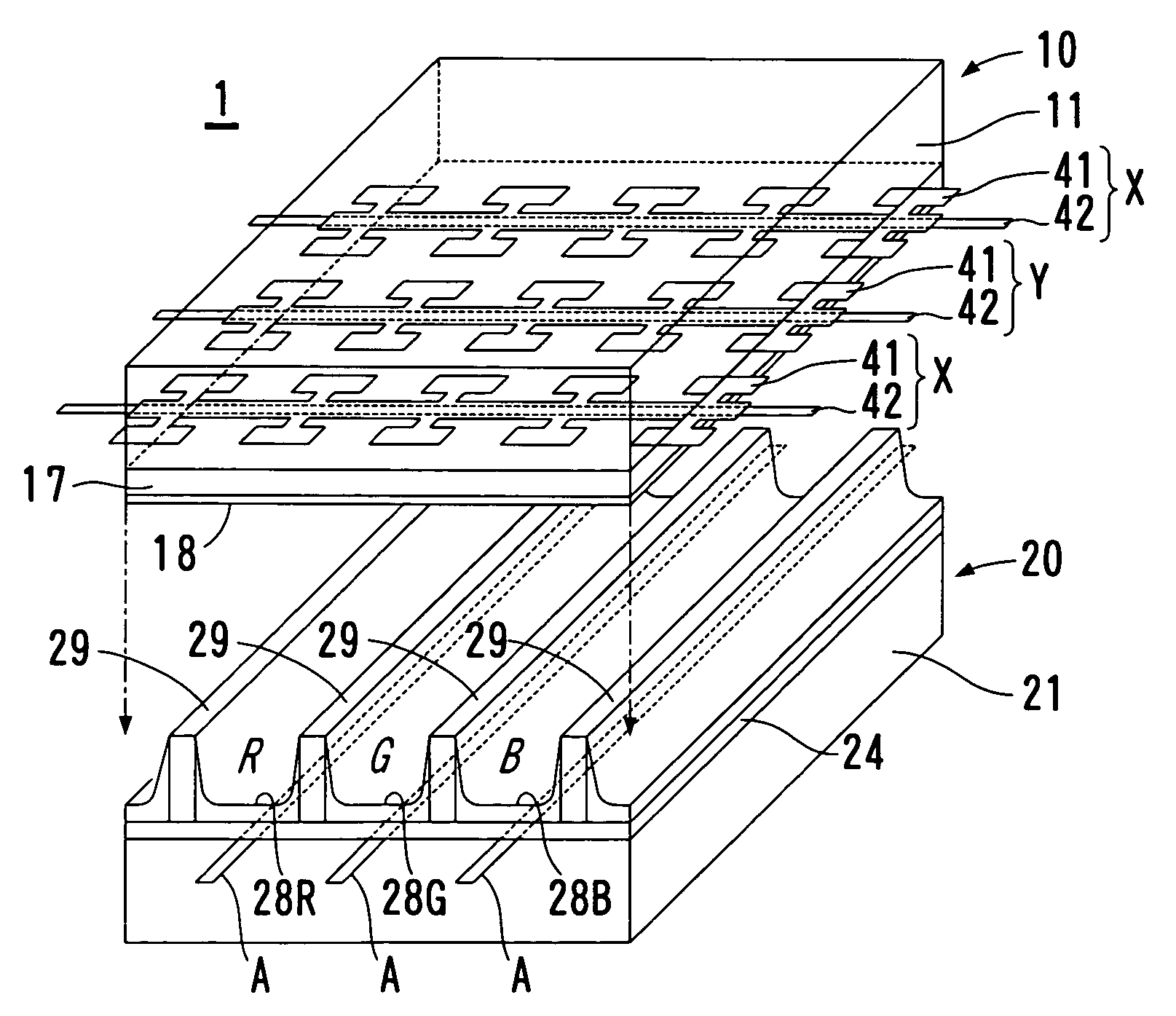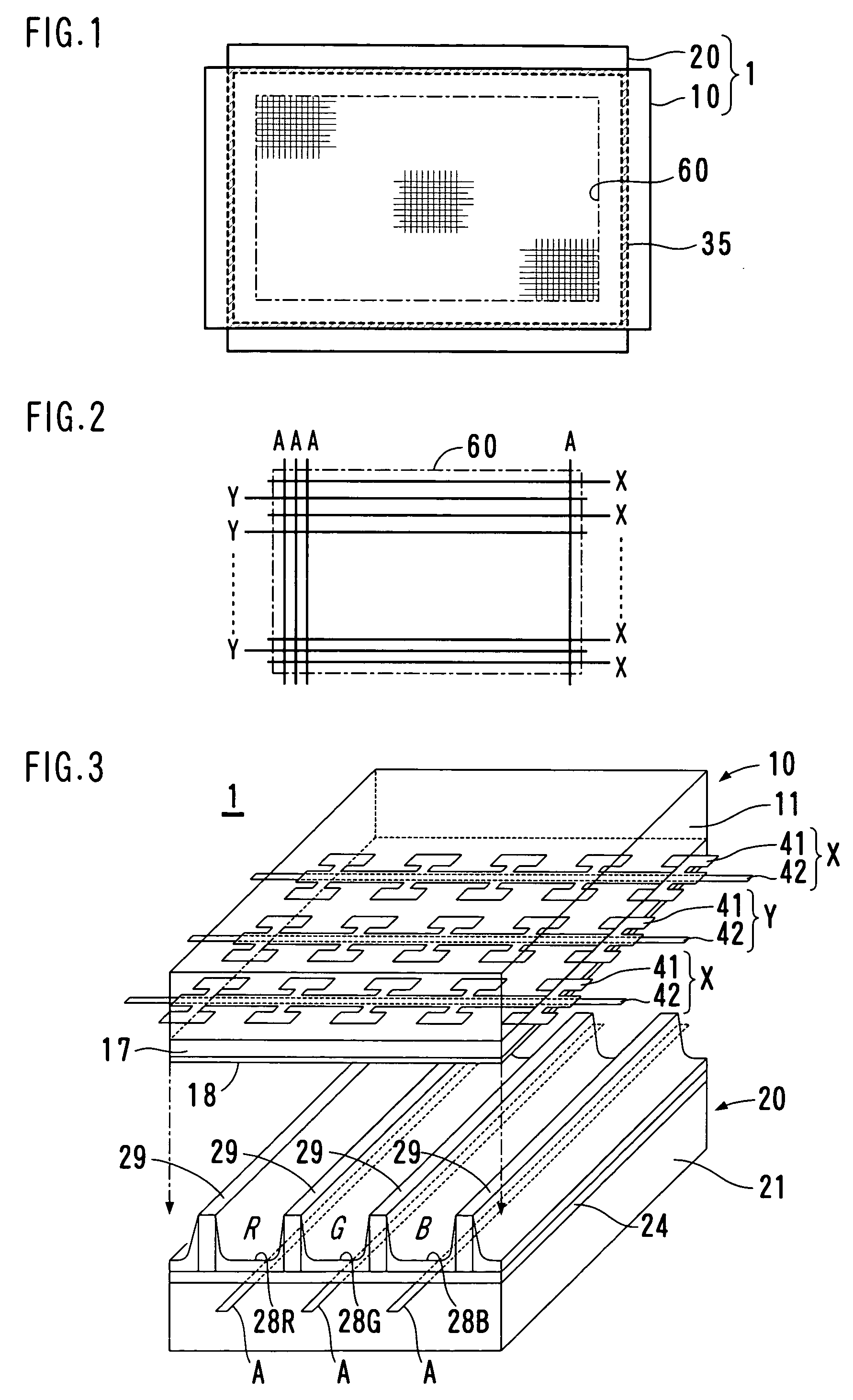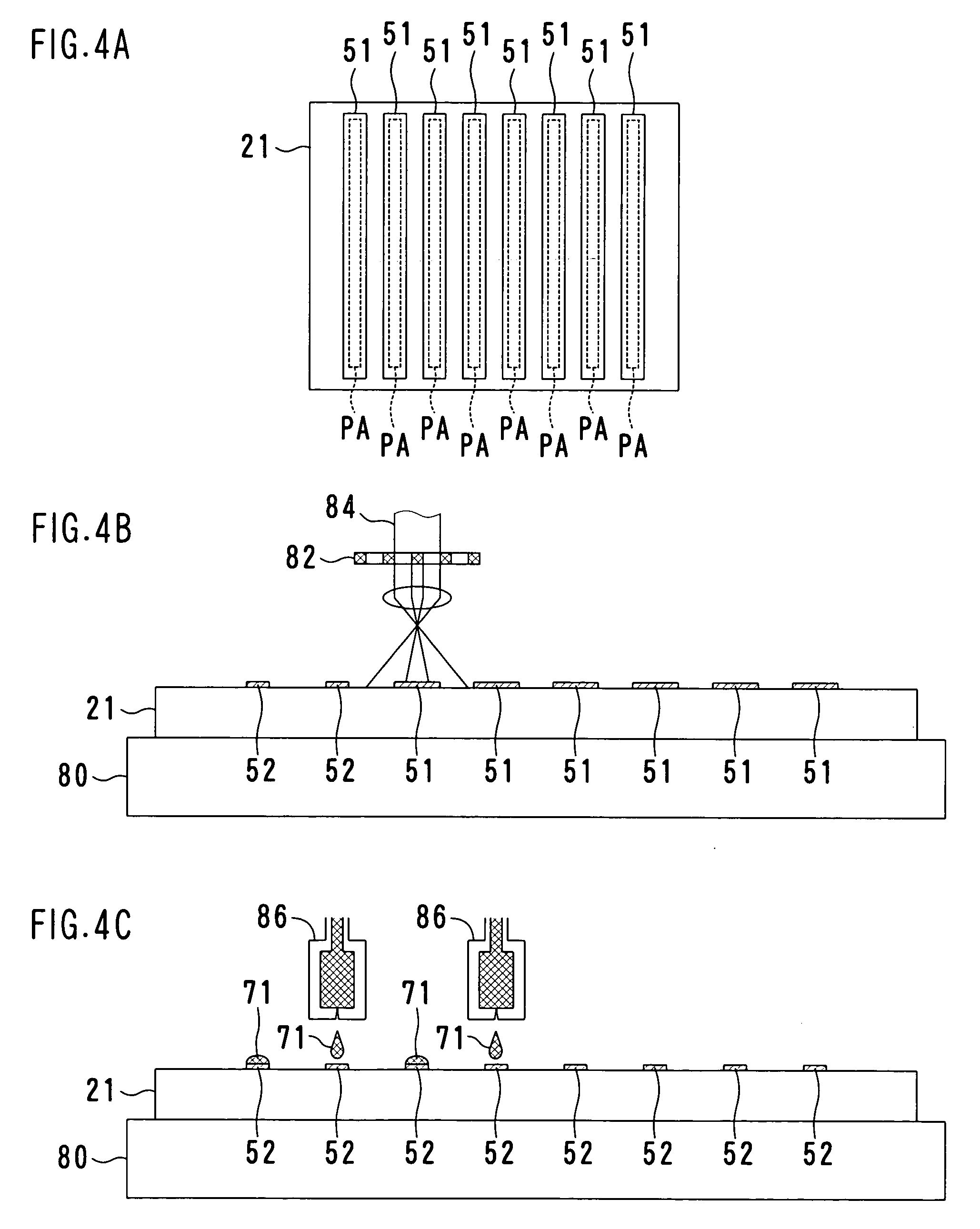Method of manufacturing flat panel displays
- Summary
- Abstract
- Description
- Claims
- Application Information
AI Technical Summary
Benefits of technology
Problems solved by technology
Method used
Image
Examples
example 1
[0033] The addressing electrodes A are formed by the use of an ink jetting process in which an electroconductive inking material is jetted onto a support surface, i.e., the glass substrate 21, on which the addressing electrodes A are desired to be formed. The electroconductive inking material is in the form of a liquid medium having microparticles of silver (Ag) dispersed therein and also having a viscosity not higher than 20 mpas. Since the glass substrate 21 has no capability of absorbing and, hence, retaining deposits of the inking material on its surfaces as is well known to those skilled in the art, direct jetting of the inking material onto the glass substrate 21 would result in scattering of the jetted inking material to such an extent as to disturb formation of the desired pattern. To enable the pattern of the electrodes to be formed satisfactorily, a surface treatment is carried out to enhance the wettability of at least a surface portion of the glass substrate 21 onto whic...
example 2
[0043] In place of the laser irradiation employed in the foregoing Example 1, a pattern exposure is carried out by the use of an ultraviolet lamp and a photomask to thereby accomplish the pattern shaping in which that unnecessary portion of each undercoat 51 is decomposed as hereinabove described.
example 3
[0044] In place of the formation of the ink deposits on the undercoats by the utilization of the ink jetting technique as in the foregoing Example 1, a full surface printing may be carried out with the use of a die coater to deposit the ink droplets 71 on only the undercoats 52. In such case, the electroconductive inking material is preferably of a kind difficult to deposit on the glass substrate 21, but alternatively the glass substrate 21 may be surface treated to enhance the ink repellent property prior to formation of the undercoats 52.
PUM
 Login to View More
Login to View More Abstract
Description
Claims
Application Information
 Login to View More
Login to View More - R&D
- Intellectual Property
- Life Sciences
- Materials
- Tech Scout
- Unparalleled Data Quality
- Higher Quality Content
- 60% Fewer Hallucinations
Browse by: Latest US Patents, China's latest patents, Technical Efficacy Thesaurus, Application Domain, Technology Topic, Popular Technical Reports.
© 2025 PatSnap. All rights reserved.Legal|Privacy policy|Modern Slavery Act Transparency Statement|Sitemap|About US| Contact US: help@patsnap.com



